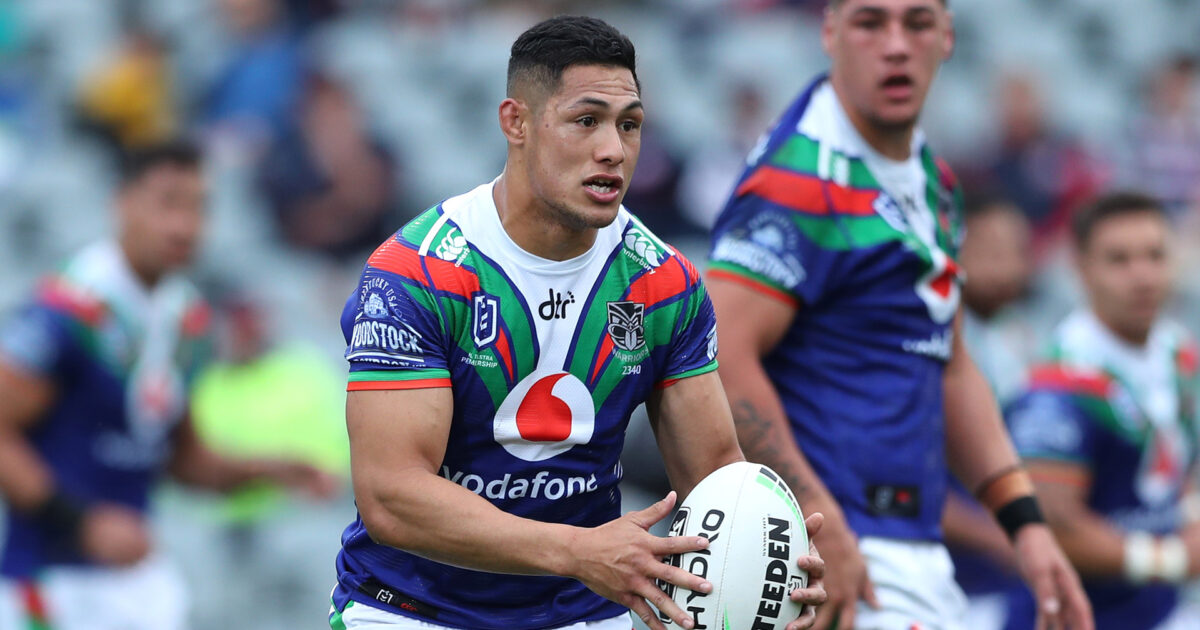NRL star Roger Tuivasa-Sheck makes decision on future following cross-code switch speculation

Roger Tuivasa-Sheck will be at the Warriors next season, with his manager ending speculation linking the brilliant fullback to rugby union in 2021.
And the 27-year-old NRL superstar and his partner Ash Walker have already made the decision to move their young family to Australia next year, if the Warriors are forced to camp across the ditch again.
While captain Tuivasa-Sheck’s commitment to the Warriors was never in question, Covid-19 has thrown up a lot of issues for sportspeople around the world, and particularly for a team like the Warriors who play in another nation’s competition.
Tuivasa-Sheck, one of the country’s most admired sports stars, has been inspirational as the Warriors dealt with all manner of mainly Covid-19 related problems in Australia this year.
The team, which plays its final match against the Sea Eagles on Sunday, has been camped in Australia for nearly five months, with the squad moving there at short notice before family members were able to join them later.
After the rugby speculation re-emerged over the weekend, Warriors CEO Cameron George and Tuivasa-Sheck’s agent Bruce Sharrock met this morning.
Sharrock – who has about 10 other Warriors on his books – told NZME that Tuivasa-Sheck was one of many professional sportspeople around the world dealing with uncertain times because of the pandemic restrictions.
Captain and fullback Tuvasa-Sheck is contracted until the end of the 2022 season, although the final year of that deal has an option in his favour.
“Like many players Roger was concerned about what next year will look like,” said Sharrock.
“Roger asked ‘what happens next year? But everyone has time to plan what they can do this time.”
Injury-plagued #Wallabies youngster Jordan Petaia is reportedly in doubt for the opening match of the #BledisloeCup in Wellington next month.https://t.co/WpHyFGg8uM
— RugbyPass (@RugbyPass) September 21, 2020
The spotlight has fallen on Tuivasa-Sheck’s 2021 season because he is so important to the club, and it was widely reported how tough he was finding life away from Ash, and their young kids Amara, aged 3, and Nico, who is about to turn 1.
They had remained in Manukau because the kids were so young, and Ash had a lot of family support here. But with more time to plan, they will head to Australia next year if necessary. Tuivasa-Sheck’s parents live in Sydney.
The rugby union suggestions didn’t come completely out of nowhere.
For starters, New Zealand Rugby Players Association manager Kevin Senio approached the Tuivasa-Sheck camp, enquiring if he would be available for a proposed match between the All Blacks and a Pasifika team.
Senio was told that Tuivasa-Sheck was under contract, and that playing for a Pasifika rugby team was “highly unlikely”. The game never went ahead.
But as Tuivasa-Sheck tried to work out what to do next year in such tumultuous times, Sharrock approached New Zealand Rugby to see if it would consider a player like him. Sharrock informed the Warriors about that.
Tuivasa-Sheck’s plans for 2021 are now set in concrete.
Sharrock said the key for players and family was to treat any shift as an adventure, and a chance to experience a different culture.
Warriors boss George said the club had to be innovative and flexible to deal with whatever lay ahead in such uncertain times.
“I have the welfare and wellbeing of every player to consider,” he said.
“These are difficult situations but I never felt that Roger was going to be leaving.
“He’s our leader, the face of the club, an amazing human.”










































































